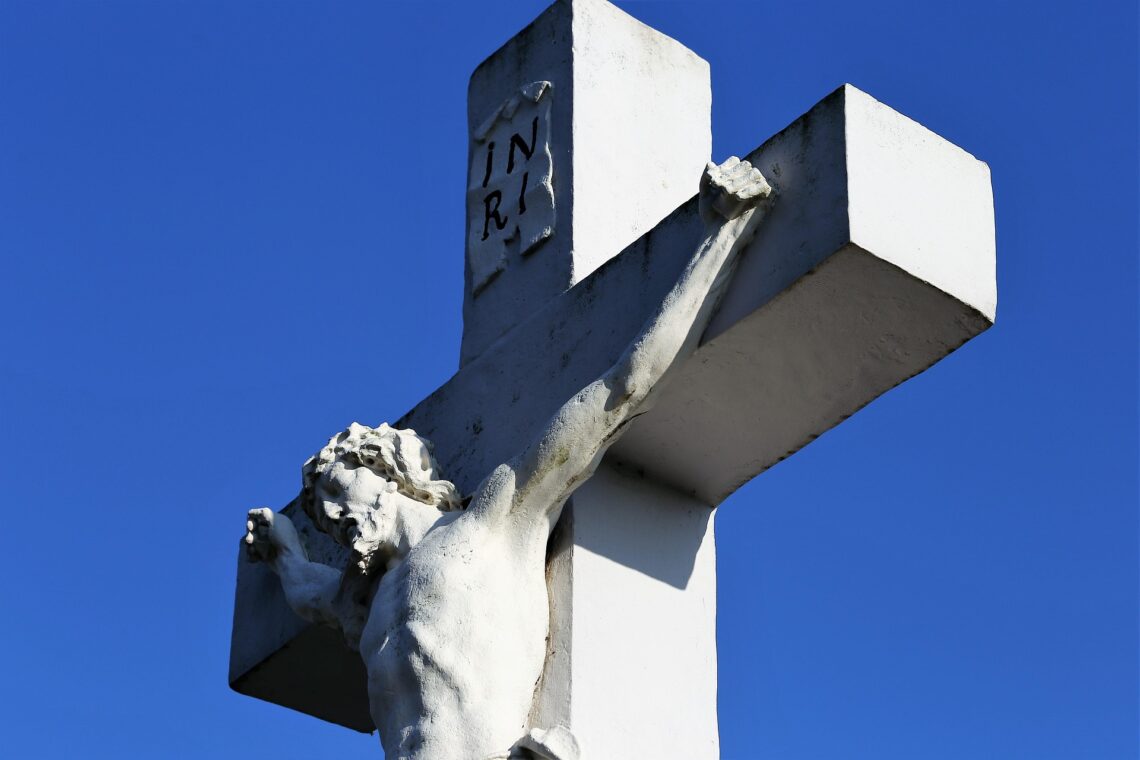Good Friday is in many ways the saddest day of the year, not just for the religious who mourn Jesus Christ and his sufferings on the cross.
At the most banal level, Good Friday is a day when everything is closed in Norway. If the fridge is empty, you just have to live with it. I have memories of a Good Friday in my student days, which I think was exactly 30 years ago today, since Good Friday was 18 April in 1995.
I was out of food, beer and snuff, I had no money either in the bank or in cash, and I was all alone in Trondheim. I even ran out of coffee.
Even though I had a steady income, I had squandered all the money, and the next pay cheque was right after Easter. So I was completely broke, and all my friends had gone home for Easter holidays. My mother was supposed to arrive on Maundy Thursday, so I would be able to borrow a few hundred kroner to buy snuff, the biggest problem. Bad weather meant that she was two days late.
To pass the time without any other stimuli, I switched on the TV, which showed an old black and white version of Anne Frank’s diary, while I enjoyed a glass of water, hungry as a starving wolf. «Good atmosphere» in other words. Of course, I realised that my hardship on Good Friday could not be compared one thousandth of a millimetre with the suffering of Jesus, almost 2000 years earlier.
Strictly speaking, Good Friday is about one of the most important events in what we can call the history of Western civilisation. You don’t have to believe in God to empathise with a crucified carpenter from Bethlehem.
Jesus is a philosophical figure for me, since I’m not religious. For me, the crucifixion symbolises the ultimate sacrifice, a self-inflicted humiliation that was accepted because of a tremendous faith in – and love for – man. The cross is the symbol of Him who created human dignity. Socrates created science, with his statement to the Oracle of Delphi: «The only thing I know is that I know nothing.»
That is why Jesus and Socrates are my absolute spiritual role models.
Crucifixion is one of the most brutal ways to execute a human being. There is something about hanging helpless and nailed, in great pain, and experiencing the birds eating your eyes while you are still alive. Like Jesus, you can ask your father the question: My God, my God, why have you forsaken me!
Peter gave the answer many years later:
«He … bore our sins in his body on the tree, that we might die to sins and live for righteousness. By his wounds you have been healed.» (1 Peter 2:24).
God sacrificed his son because he loved people. I have great respect for Jesus who accepted his task, even though he experienced his own fears, the betrayal of others and deep doubts.
Crucifixion was a humiliating punishment fit for slaves. When Spartacus was finally defeated, the road to Rome became a giant avenue of crucified slaves and gladiators. General Crassus ordered that the distance between the crucified should not exceed a hundred feet. It is estimated that 20,000 people were crucified on the orders of Crassus.
Jesus was a radical of the best kind. Not like modern radicals, those who say they love the poor but really just hate the rich. Jesus truly loved those at the bottom of the ladder, as long as they were willing to repent of their sins and change their behaviour.
He who is without sin can cast the first stone, Jesus said. This is a powerful idea that seems completely forgotten in the society we have to endure. There are no limits to condemnation from all sides. The left in particular is characterised by a self-righteous sanctimony that is shockingly unsympathetic.
Arrogantly, they claim that they know everything and have the power to define what constitutes a good person. It’s like a mirror image of Socrates. Leftists today are like Socrates from backwards, they know everything.
Jesus forgave the unrepentant thief who hung on the cross beside him. He forgave those who had nailed him to the cross.
– Father, forgive them, for they know not what they do.
Today, people can’t forgive anything anymore. We still have the original sin, like if you happen to be born as a white, heterosexual male. Forgiveness has been discarded.
On the right, too, there are countless examples of snobbery, belittling other people and emphasising one’s own value. Self-criticism and self-examination should be a compulsory subject at school.
Capitalism has grotesque manifestations, such as brand hysteria, bullying of people who don’t have an expensive enough mobile phone and ridicule of the ordinary, such as charter tourists or those who spend the summer on campsites.
When this kind of ridicule and denigration of people comes from people with lips full of chemicals and newly operated body parts, who drink champagne on credit and have never had a proper job, it’s bad enough.
But when it’s our «leaders» who express such hatred for those who refuse to be mental slaves, I think Jesus means we have to take up the fight ourselves, regardless of the consequences it may have for us.
Because if you still have hope for a good future, you can’t let any unpleasantness stop you. You must at least be willing to fight a spiritual war. This war always starts within ourselves, where good and evil are in an eternal civil war for our soul, or spirit.
This also applies to self-proclaimed pessimists like myself: You have to take up the fight even if you think it’s hopeless. It’s a very small sacrifice compared to what Jesus had to go through. What’s more, fighting against the powers that be makes you stronger.
So today I’m going to enjoy the Easter sun, and have a glass of red wine for a rebel and champion of the individual. A relentless critic of the abuse of power and parasitism. A timeless hero who deserves his unique place in history, whether he was the Son of God or not.
Today we remember Jesus Christ.
Rest in peace in heaven with your father, you’ve earned it. But I really think we pitiful humans will need your help soon.


